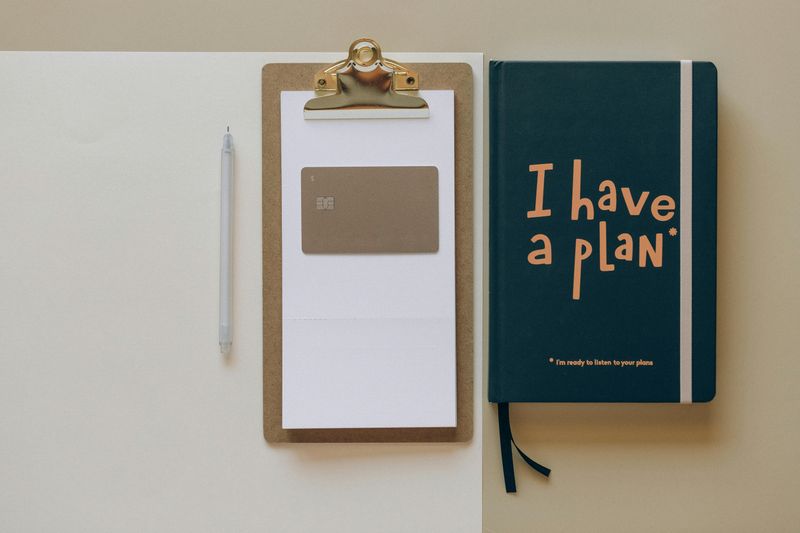Living with less isn’t just about having fewer things – it’s a whole way of life that can make you happier and healthier. Minimalists focus on what truly matters instead of getting lost in all the stuff that doesn’t.
They create space in their homes and minds by cutting out the extra noise. Ready to discover how these simple-living folks find more joy with less baggage?
1. Clear Out Clutter Regularly
The minimalist’s home isn’t magically tidy – they work at it consistently. Every few months, they scan their spaces with fresh eyes, asking one simple question about each item: “Does this add value to my life?”
Anything that doesn’t make the cut gets donated, sold, or recycled. This isn’t a one-time spring cleaning but a lifestyle habit that prevents stuff from piling up again. The result? Rooms that feel peaceful rather than overwhelming, and the surprising joy of opening a drawer to find exactly what you need without digging.
2. Choose Experiences Over Things
Remember that awesome vacation where you laughed until your sides hurt? Minimalists bank on those memories instead of shopping bags. They spend money on concerts, hiking trips, cooking classes, and family adventures rather than the latest gadgets or fashion trends.
Science backs this up too! Studies show that the happiness from buying stuff fades quickly, while memories of experiences actually get better with time. By investing in doing rather than owning, minimalists build a life rich with stories to tell, not things to dust. Their photo albums overflow while their storage closets stay manageable.
3. Think Before Buying
“Do I really need this?” This question saves minimalists from countless impulse purchases. When spotting something tempting, they don’t immediately reach for their wallet – instead, they pause and consider.
Many follow the 30-day rule: if you want something non-essential, wait a month before buying. Usually, the urge passes! For necessary purchases, quality trumps quantity every time. A well-made coat that lasts ten winters beats ten cheap jackets that fall apart after one season.
This thoughtful approach means fewer returns, less waste, and homes filled only with items they genuinely value.
4. Create Simple Daily Routines
Morning chaos isn’t part of the minimalist playbook. Instead of frantic decision-making, minimalists rely on streamlined routines that make everyday life flow smoothly.
A capsule wardrobe eliminates the “nothing to wear” syndrome despite a full closet. A consistent morning ritual – perhaps meditation, journaling, and a simple breakfast – starts the day with purpose rather than panic.
Even their skincare routines typically contain just a few effective products instead of crowded medicine cabinets full of half-used bottles. These predictable patterns reduce stress and free up mental energy for things that actually matter.
5. Cut Down Digital Noise
Notification overload? Not in a minimalist’s world. They treat digital clutter with the same ruthlessness as physical stuff, knowing that constant pings and endless scrolling steal precious attention.
Email inboxes stay manageable through regular unsubscribing from newsletters they no longer read. Social media feeds get curated to show only what truly adds value.
Many set specific times for checking messages rather than responding to every alert. Some even keep old-school alarm clocks beside their beds instead of phones, creating tech-free zones where minds can truly rest.
6. Focus on Meaningful Goals
“Jack of all trades, master of none” doesn’t apply to minimalists. Rather than chasing every opportunity, they zero in on what truly matters to them. This might mean pursuing three solid friendships instead of dozens of acquaintances, or mastering one hobby instead of dabbling in twenty.
Their to-do lists contain fewer items but with greater significance. By saying no to activities that don’t align with their values, they create space to excel at what they care about most.
This focused approach leads to deeper satisfaction and genuine progress instead of the exhaustion that comes from spreading yourself too thin.
7. Invest in Quality, Not Quantity
The $200 boots that last a decade rather than $50 pairs replaced yearly? That’s minimalist math at work. These practical folks understand that sometimes spending more upfront actually saves money in the long run.
Beyond budgeting, this approach reduces the environmental impact of constant manufacturing and waste. A well-crafted wooden cutting board might cost more than its plastic counterpart, but it brings daily joy through its beauty and function.
Minimalists would rather own three excellent shirts they love wearing than fifteen mediocre ones that never feel quite right. Their homes contain fewer objects, but each one earns its place.
8. Practice Daily Gratitude
Minimalists have a secret weapon against the constant wanting that drives consumerism: thankfulness for what they already have. Many keep gratitude journals where they regularly note the good things in their lives, from morning sunshine to supportive friends.
This habit shifts focus from what’s missing to what’s present. When you regularly acknowledge how much you already enjoy, the urge to fill emotional gaps with shopping bags naturally diminishes.
The practice creates a positive feedback loop – the more you appreciate what you have, the less you crave what you don’t. This contentment becomes one of minimalism’s greatest rewards.
9. Streamline Financial Life
Money stress vanishes when you know exactly where every dollar goes. Minimalists apply their decluttering skills to finances by creating simple budgeting systems they actually stick with.
Many automate savings and bill payments to reduce mental load. They typically avoid complex investment schemes in favor of straightforward approaches. Credit cards? Used carefully if at all, preventing the stress of mounting debt.
This financial clarity creates tremendous freedom – when you spend less on unnecessary items, you need less income to live well. Some even downsize careers to pursue meaningful work that pays less but offers more satisfaction.
10. Move Your Body Regularly
Fancy gym memberships and complicated workout equipment? Most minimalists pass on those in favor of simple physical activities that require little gear but deliver big benefits. Walking, running, basic yoga, or bodyweight exercises fit perfectly with their less-is-more philosophy.
The minimalist approach to fitness focuses on consistency over intensity and function over appearance. Many integrate movement naturally into daily life – biking to work, taking stairs, or gardening.
This practical fitness mindset reduces the mental barriers to exercise and eliminates the guilt of unused equipment gathering dust. Regular movement becomes just another part of a balanced, intentional life.











